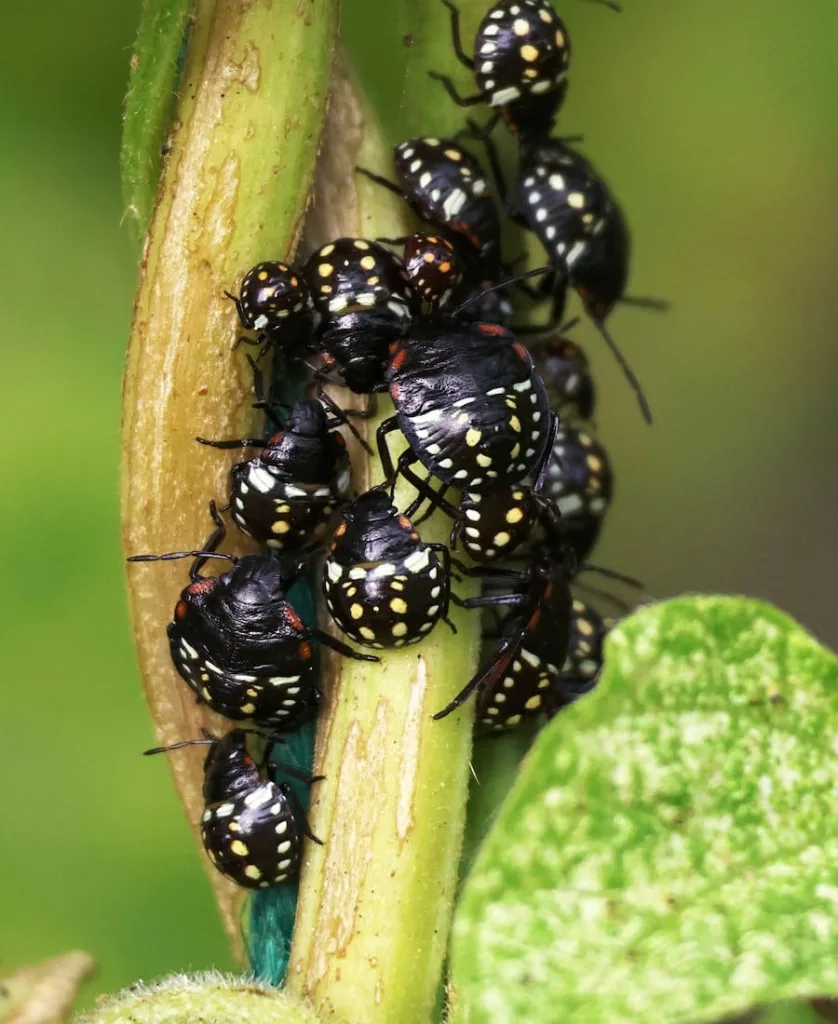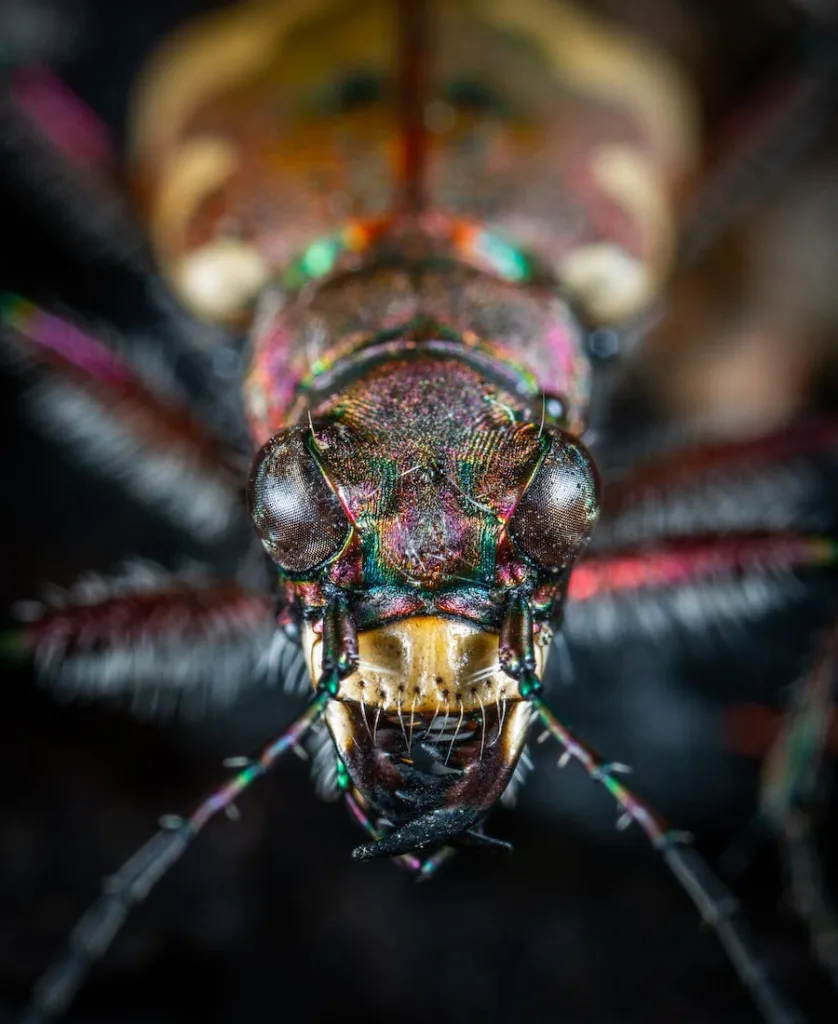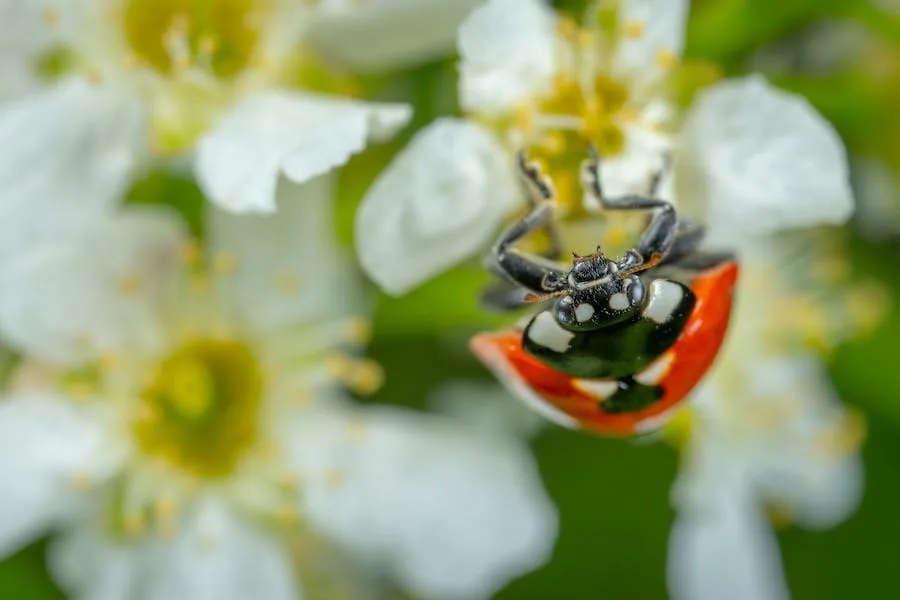Insects and bugs are an integral part of our ecosystem, and they have been around for millions of years.
While some people may find them creepy and disgusting, others believe that they have a deeper spiritual meaning.
In many cultures, insects are considered to be messengers from the spirit world, and they are believed to convey important messages to those who encounter them.
According to spiritual beliefs, the presence of certain insects can signify different things.
For instance, seeing a butterfly is often associated with transformation and rebirth, while a ladybug is believed to bring good luck and prosperity.
Similarly, the praying mantis is said to symbolize stillness, patience, and focus, while the dragonfly is associated with change and adaptability.
These beliefs have been passed down through generations, and they continue to be an important part of many spiritual practices.
While there is no scientific evidence to support these beliefs, many people continue to find comfort and guidance in the spiritual meanings of insects and bugs.
Whether you believe in these beliefs or not, there is no denying that insects play an important role in our world, and they are a fascinating and diverse group of creatures that continue to inspire and intrigue us.
Understanding Bug Symbolism

Throughout history, bugs have been a source of fascination and wonder for humans.
They are often seen as pests, but in many cultures, they are also viewed as symbols of transformation, growth, and spiritual awakening.
Understanding bug symbolism can help us gain a deeper appreciation of these creatures and their place in the natural world.
Transformation and Growth
One of the most common themes in bug symbolism is transformation. Many insects go through a metamorphosis, changing from a larva or nymph into an adult.
This process is often seen as a metaphor for personal growth and development. Just as a caterpillar transforms into a butterfly, we too can transform and grow into something beautiful and amazing.
Adaptability and Resilience
Another important theme in bug symbolism is adaptability and resilience. Bugs are incredibly adaptable creatures, able to survive in a wide range of environments and conditions.
They are also incredibly resilient, able to bounce back from adversity and continue on with their lives.
This is a powerful lesson for humans, who can learn to be more adaptable and resilient in the face of challenges and setbacks.
Communication and Connection
Bugs are also known for their ability to communicate and connect with each other. Ants, for example, work together in intricate colonies to achieve their goals.
Bees communicate through complex dances to indicate the location of food sources.
This emphasis on communication and connection is a reminder of the importance of community and working together towards a common goal.
Conclusion
In conclusion, understanding bug symbolism can help us gain a deeper appreciation of these fascinating creatures and the lessons they have to teach us.
From transformation and growth to adaptability and resilience, bugs offer us a wealth of wisdom and insight into the natural world.
The Spiritual Significance of Bugs
Many cultures have long held that insects and bugs hold spiritual significance. The spiritual meaning of bugs is often associated with transformation, growth, and change.
Insects can also symbolize the ability to adapt to different environments and situations, as well as the importance of working together with others.
In some spiritual traditions, insects are seen as messengers or omens, bringing messages of warning or guidance.
For example, the appearance of a butterfly may be seen as a sign of transformation or spiritual growth, while the presence of a spider may be seen as a warning of danger or deception.
Insects and bugs can also represent the natural world and the interconnectedness of all things.
They remind us of the importance of respecting and protecting the environment, as well as the need to live in harmony with nature.
Overall, the spiritual significance of bugs is complex and multifaceted.
While some insects may be seen as positive symbols of growth and transformation, others may be viewed as negative omens or reminders of danger.
Regardless of their specific spiritual meanings, insects and bugs serve as important reminders of the interconnectedness of all things and the importance of living in harmony with the natural world.
Recommended post: the spiritual meaning of yellow jackets.
Different Types of Bugs and Their Meanings

Bugs are fascinating creatures that have been around for millions of years. They come in various shapes, sizes, and colors, and each one has its own spiritual meaning.
In this section, we will explore the spiritual meanings of some of the most common bugs.
Ant Spiritual Meaning
Ants are known for their hard work and dedication. They are social creatures that work together to achieve a common goal.
In spiritual terms, ants represent teamwork, cooperation, and unity. They are a reminder that when people work together, they can achieve great things.
Butterfly Spiritual Meaning
Butterflies are a symbol of transformation and change. They start their lives as caterpillars and then transform into beautiful butterflies.
In spiritual terms, butterflies represent the journey of the soul. They are a reminder that change is a natural part of life and that people should embrace it.
Spider Spiritual Meaning
Spiders are often associated with fear and negativity, but in spiritual terms, they represent creativity and patience.
Spiders are known for their intricate webs, which they patiently weave over time. In spiritual terms, spiders are a reminder that people should take their time and be patient when working on their goals.
Ladybug Spiritual Meaning
Ladybugs are a symbol of good luck and prosperity. In many cultures, they are believed to bring good fortune and happiness.
In spiritual terms, ladybugs represent protection and guidance. They are a reminder that people are never alone and that they always have someone looking out for them.
Dragonfly Spiritual Meaning
Dragonflies are a symbol of change and transformation. They start their lives as nymphs and then transform into beautiful dragonflies.
In spiritual terms, dragonflies represent the journey of the soul and the importance of embracing change.
They are a reminder that people should not be afraid of change and that it can lead to growth and transformation.
Bee Spiritual Meaning
Bees are known for their hard work and dedication. They work tirelessly to gather nectar and pollen to make honey.
In spiritual terms, bees represent productivity and the importance of hard work. They are a reminder that people should work hard to achieve their goals and that their efforts will be rewarded.
In conclusion, bugs have many spiritual meanings that can teach people valuable lessons. They are a reminder that people are never alone and that they always have someone looking out for them.
By embracing the spiritual meanings of bugs, people can live more fulfilling and meaningful lives.
Read the spiritual meaning of black cricket.
Bugs in Dreams and Their Interpretations
Dreams about bugs are quite common and can have different meanings depending on the type of bug, the emotions felt during the dream, and the context of the dream.
In general, bugs in dreams are often associated with negative emotions, fear, and anxiety. However, they can also represent positive things like transformation, productivity, and luck.
Common Types of Bugs in Dreams
Here are some of the most common types of bugs that appear in dreams and their interpretations:
Spiders
Spiders are often associated with fear and anxiety. However, they can also represent creativity, patience, and feminine energy.
Ants
Ants in dreams can represent hard work, productivity, and cooperation. However, they can also symbolize feeling overwhelmed or controlled by others.
Bees
Bees in dreams can represent productivity, teamwork, and community. However, they can also symbolize feeling threatened or stung by someone or something.
Butterflies
Butterflies in dreams are often associated with transformation, growth, and beauty. They can also represent freedom and lightness.
Cockroaches
Cockroaches in dreams can represent dirt, decay, and fear. They can also symbolize feeling disgusted or ashamed.
Overall Interpretation
Interpreting bug dreams involves considering the specific insect, emotions during the dream, and overall context to gain a deeper understanding of personal associations.
While bugs in dreams can be associated with negative emotions, they can also represent positive things like transformation, productivity, and luck.
Read the spiritual meaning of bee sting and your symbolism.
Bugs in Various Cultures and Religions

Bugs have played a significant role in various cultures and religions throughout history. Here are some examples of how different cultures and religions perceive bugs.
Bugs in Native American Tradition
Many Native American tribes believe that bugs are messengers from the Creator and have spiritual significance.
For example, the Hopi tribe sees ants as symbols of hard work, patience, and cooperation. The Navajo tribe believes that butterflies are a symbol of transformation and change.
The Lakota tribe considers dragonflies as a symbol of illusion and the power of dreams.
Bugs in Buddhism
In Buddhism, bugs are seen as sentient beings that are equal to humans and animals. Killing bugs is considered a negative karma that can lead to rebirth in lower realms.
However, the Buddha taught that all beings, including bugs, can attain enlightenment through meditation and following the Eightfold Path.
Bugs in Christianity
In Christianity, bugs are not usually associated with spirituality, but they are mentioned in the Bible.
For example, locusts are mentioned in the Book of Exodus as one of the ten plagues that God sent to Egypt to convince Pharaoh to release the Israelites.
In the New Testament, John the Baptist ate locusts and wild honey in the wilderness.
Overall, bugs have different meanings and symbolism in various cultures and religions.
Understanding the spiritual significance of bugs can help us appreciate their role in nature and respect all living beings.
Conclusion
Insects and bugs have been an important part of human culture since ancient times.
They have been used in art, literature, and religion to symbolize a variety of things, from good luck and prosperity to death and decay.
The spiritual meaning of bugs varies depending on the culture and belief system.
In some cultures, bugs are seen as messengers from the gods or as symbols of transformation and change. In others, they are seen as pests or symbols of evil.
Despite these differences, there are some common themes that emerge when examining the spiritual meaning of bugs.
Many bugs are associated with protection, success, intuition, balance, and dreams.
They are also often seen as symbols of transformation and growth, reflecting the natural cycles of birth, death, and rebirth that are a part of all life.
While bugs may not be everyone’s favorite creatures, they can teach us important lessons about the world around us and our place in it.
By paying attention to the spiritual meaning of bugs, we can gain a deeper understanding of ourselves and our connection to the natural world.








